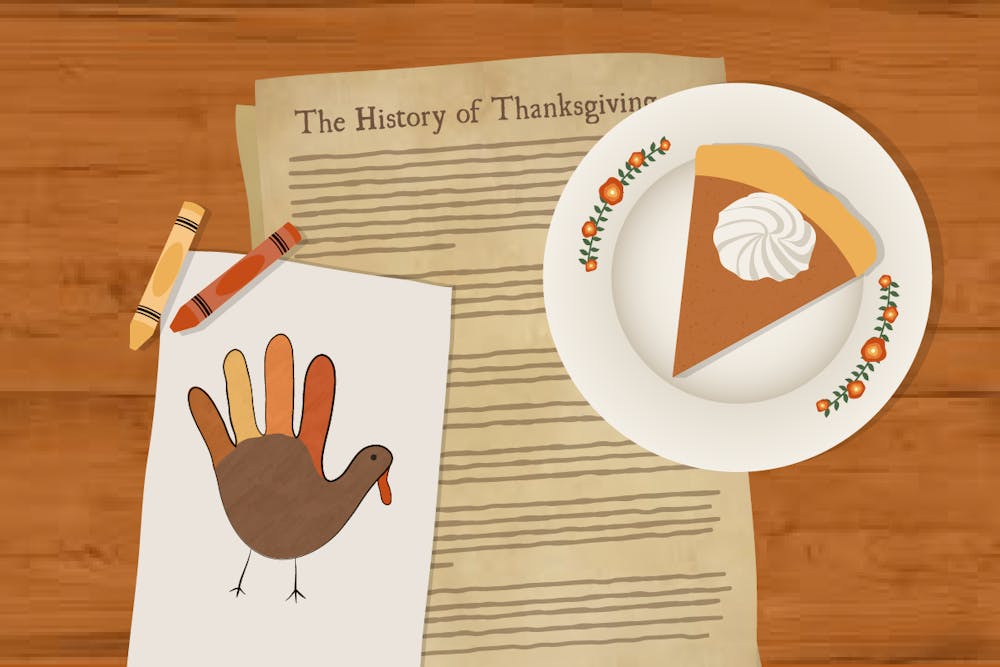Thanksgiving shouldn’t be celebrated with a sanitized version of American history, but it should be used to reflect, be authentically thankful and spent with family.
As most Americans know, Thanksgiving celebrates the colonization of America. It was taught to us as cute little cartoon pilgrims and Indians eating a turkey dinner together.
This is, of course, a myth. Though there was a party at what we commemorate as the first Thanksgiving, according to The New Yorker article “The Invention of Thanksgiving,” the gunshot sounds of a round of target practice during the Thanksgiving celebration brought the Wampanoag militia, who had likely signed a mutual defense pact with the colony. The uninvited Native Americans then uneasily joined the celebration. There were understandable tensions as the colonists took up more of the Natives’ land and fought them in more armed conflicts over the following years.
Instead of Thanksgiving, some remember the fourth Thursday of November as the National Day of Mourning, a day to honor and support Native American people both in remembering their rich history and in speaking for their present struggles against oppression and racism.
We have twisted Thanksgiving so far from its roots, which weren’t particularly positive to start with, into an exhibition of American culture as an ideal, with bountiful food and forced family time with an unnecessary Instagram veneer.
For instance, much of the modern traditional Thanksgiving meal wouldn’t have been feasible for the colonists in reality. With the lack of sugar, cranberry sauce and pumpkin pie wouldn’t have been present. Turkeys were available and were probably eaten, but our current traditions have forgotten that seafood was likely consumed over the celebration. Potatoes had not been brought to the northern colonies, so that was off the menu for the colonists.
“The Sioux Chef’s Indigenous Kitchen” author Sean Sherman’s article in Time Magazine discusses what it is like to celebrate Thanksgiving as a Native American. He says that instead of pointing to the myth of unity between colonists and Native people, Americans should "focus simply on values that apply to everybody: togetherness, generosity and gratitude.”
To me, Thanksgiving is a time where families try to hide their struggles — even more than the rest of the year. So much energy goes into putting together the perfect meal, making sure the house is clean and fixing all the other little details needed to make it a perfect holiday. Not being able to deliver leads many families to disappointment.
The ideal Thanksgiving isn’t available to everyone. Whether it’s a problem of food insecurity or having a non-traditional nuclear family, we’ve built up Thanksgiving as a time to show off in front of neighbors and extended family. Making the expectations of Thanksgiving unattainable for some people is so American it's sad.
When you are celebrating Thanksgiving this year, instead of focusing on tradition, don’t be afraid to be authentic in your celebration. Don’t let yourself be upset when things go wrong, but just enjoy the ride. Recognize what you can be thankful for but also be honest with your flaws and find ways to work on them. If we could do this as a culture, we might be able to heal the walls we’ve built up against one another.
Just ignoring Thanksgiving's history isn’t going to help. We have to use Thanksgiving to be authentically grateful for what we’ve been given but also recognize and reflect on what we could have done better both personally and societally.
Thanksgiving shouldn’t be about perfection; it should be about progress.

